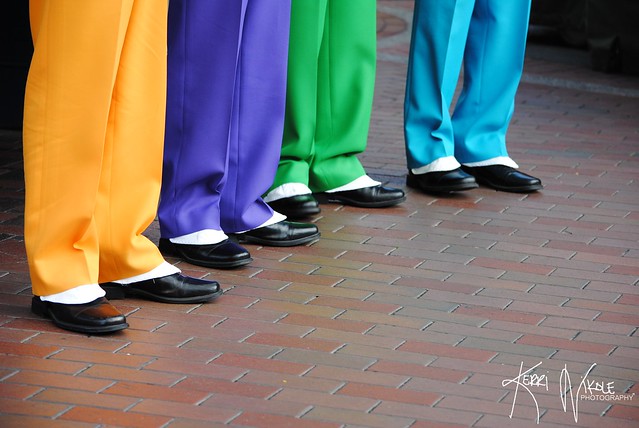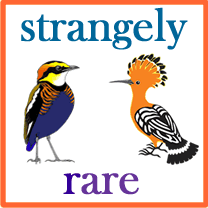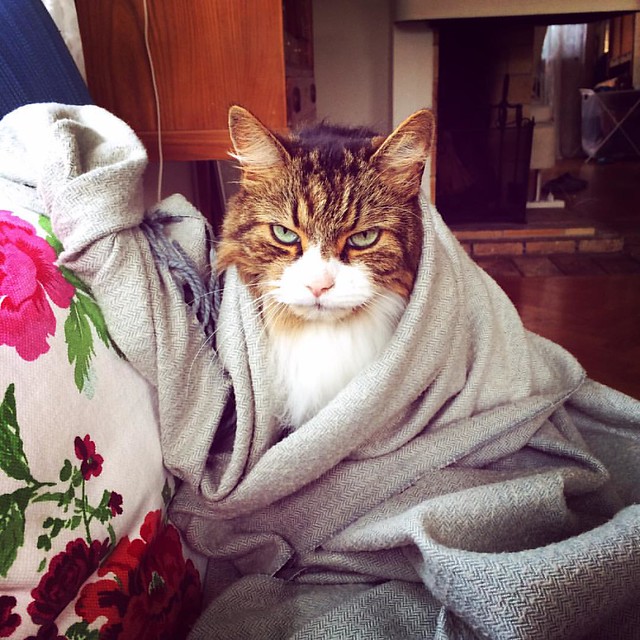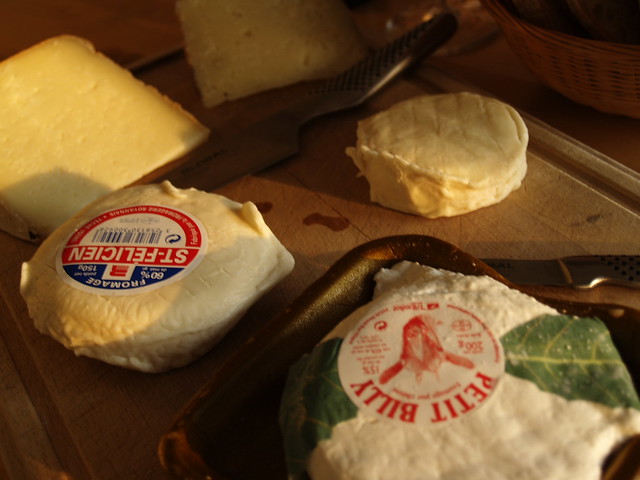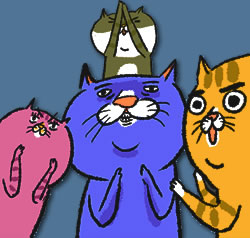The word dapper means “neat and trim in appearance” or “very spruce and stylish”, or “alert and lively in movement and manners” according to the Merriam-Webster dictionary. According to Wiktionary it means “neat, trim, stylisly or neatly dressed, quick, or little and active”, and according to the Urban Dictionary it means “incredibly smart, sexy and stylish”.
Synonyms include: dashing, jaunty, natty, raffish, rakish, snappy, spiffy and spruce. Do you have any others?
Dapper comes from the Middle English daper (pretty, neat), from the Middle Dutch dapper (stalwart, nimble), from the Old Dutch *dapar, from the Proto-Germanic *dapraz (stout; solid; heavy; bold), from the Proto-Indo-European *dʰob-/*dʰeb- (thick, heavy) [source] – so it’s meaning has changed a bit over time.
In Dutch dapper [ˈdɑpər] means brave, bold, bravely, daring, fearless, gallant, valiant or courageous, and it’s also used in the same sense as the English word. The word goedgekleed is also used to mean dapper, well-dressed or sharp.
Here are some examples of how it’s used (from Reverso and bab.la):
- Je bent zo’n dapper kleine jongen = You’re such a brave young man
- Ze zijn net zo slim en dapper als u = They’re smart and courageous, just like you
- We moeten dapper zijn en sterk = We need to be brave and strong
- Maar ik weet ook dat ze dapper hebben gevochten = But I know that they fought courageously
- Laten we dapper zijn! = Let’s be brave!
Related words include:
- dapperheid = bravery, prowess, courage
- verdapperen = to regain one’s strength, strengthen, become fiercer (used in Belgium)
Cognate words in other languages include:
- Bulgarian: дебел [dɛˈbɛl] = thick, close-woven, heavy (material), fat, stout, podgy, deep (voice)
- Danish: tapper = brave, valiant, courageous
- Faroese: dapur = sad
- German: tapfer = brave, dauntless, hardy, tough
- Icelandic: dapur = sad, dejected
- Norwegian: daper = brave, courageous
- Russian: дебелый [dʲɪˈbʲeɫɨj] = plump
- Swedish: tapper = courageous, doughty, fearless, gallant, hardy, valiant, brave
Here’s an audio version of this post.
